- Share via
The protesters in Portland, Ore., known as the Wall of Moms are among self-identified mothers willing to take lead positions during demonstrations. They’re not the first. In recent decades, mothers across the globe have played significant roles in a variety of conflicts. Whether in opposition to their national governments or challenging other forms of authority such as law enforcement, these women have often been at the forefront of key moments.
Here are a few notable examples:
United States
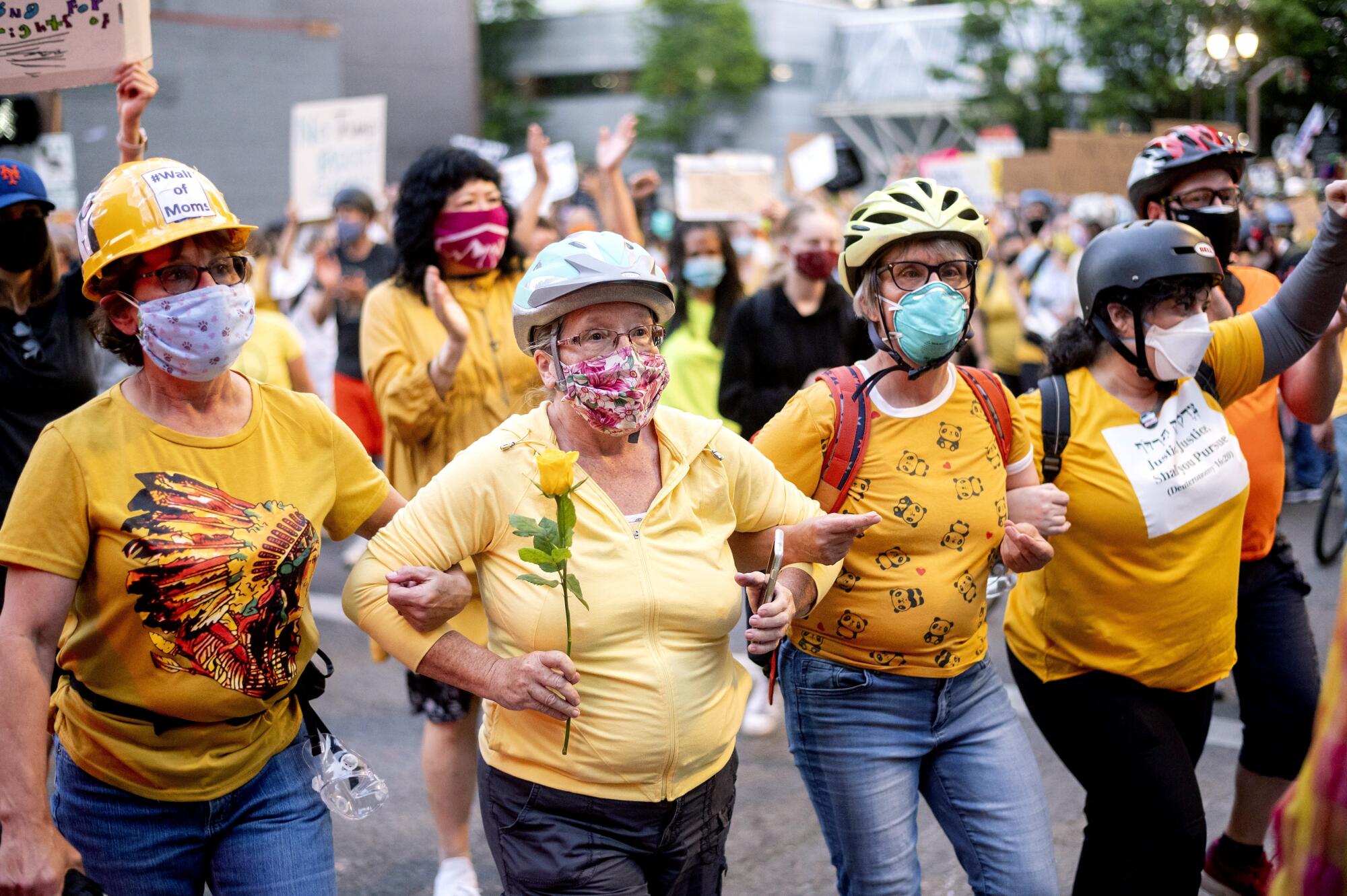
While then-Minneapolis officer Derek Chauvin pressed his knee onto George Floyd’s neck, Floyd repeatedly called out for his mother, later prompting signs that read “All mothers were summoned when George Floyd called out for his momma” at protests across the United States.
In Portland, where Black Lives Matter uprisings have continued unabated since Floyd was killed in police custody in late May, hundreds of women clad in yellow formed a “Wall of Moms” between demonstrators and agents this week following reports that federal agents in unmarked vehicles were apprehending activists.
The women were joined at the demonstrations by some husbands and dads who used leaf blowers to help keep tear gas away from protesters.
Cuba
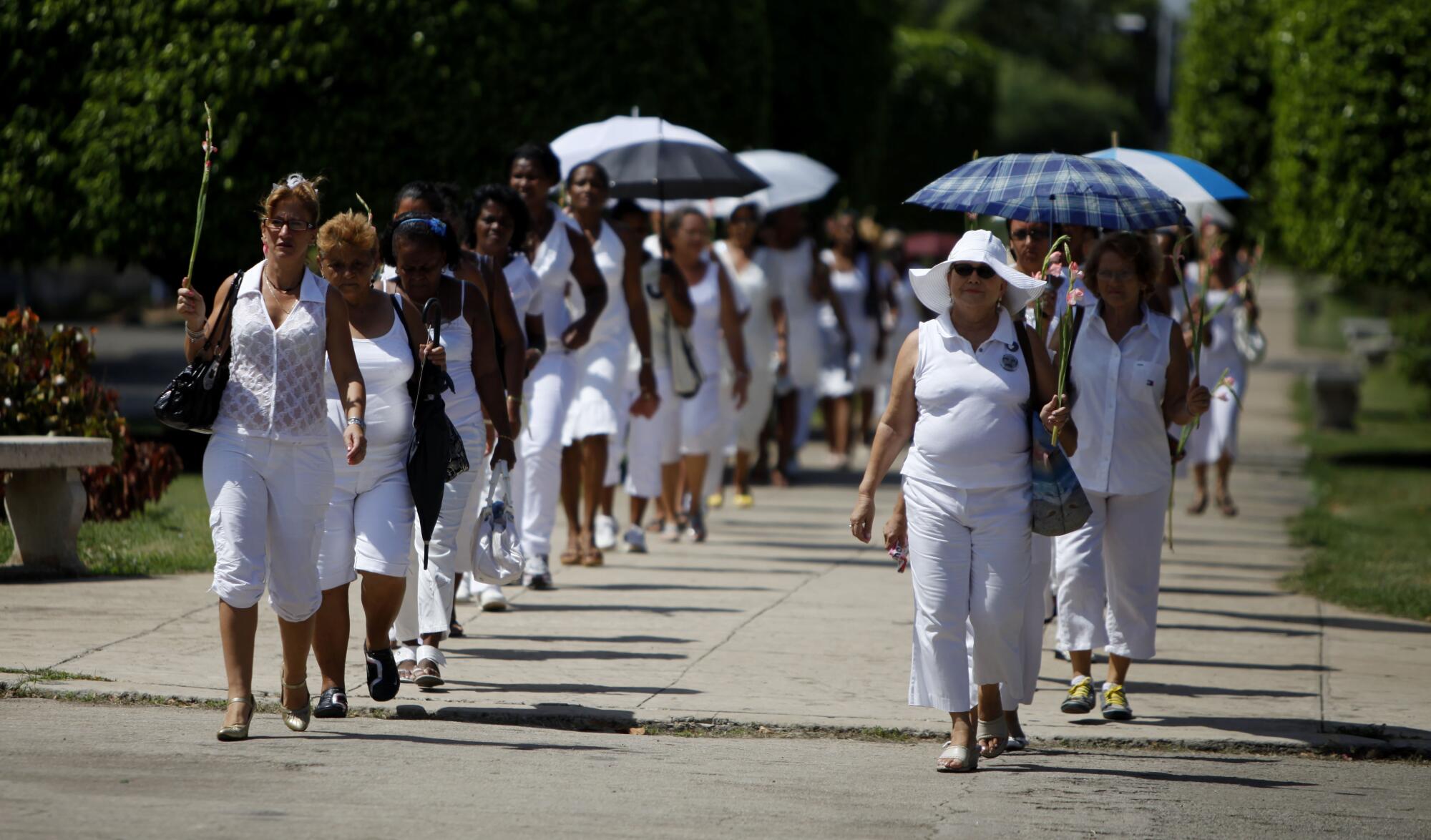
Damas de Blanco (Ladies in White) was founded in 2003 by the wives and female relatives of 75 dissidents sentenced to prison on treason charges during Cuba’s “Black Spring,” including doctors, journalists and teachers.
For almost a decade, the women protested the incarcerations by attending Mass at St. Rita’s Church in Havana each Sunday dressed in white. Then, they silently walked through the streets carrying gladiolas.
The last of the 75 imprisoned dissidents were freed in 2011, and most went into exile in Spain. Nevertheless, the damas continued to agitate for the release of all political prisoners, sometimes facing violence and harassment at the hands of government police. In 2018, the Cato Institute, a libertarian think tank based in Washington, D.C., presented the group with the Milton Friedman Prize for Advancing Liberty, a $250,000 award “presented to a group or individual who has made a significant contribution to advance human freedom.”
Argentina
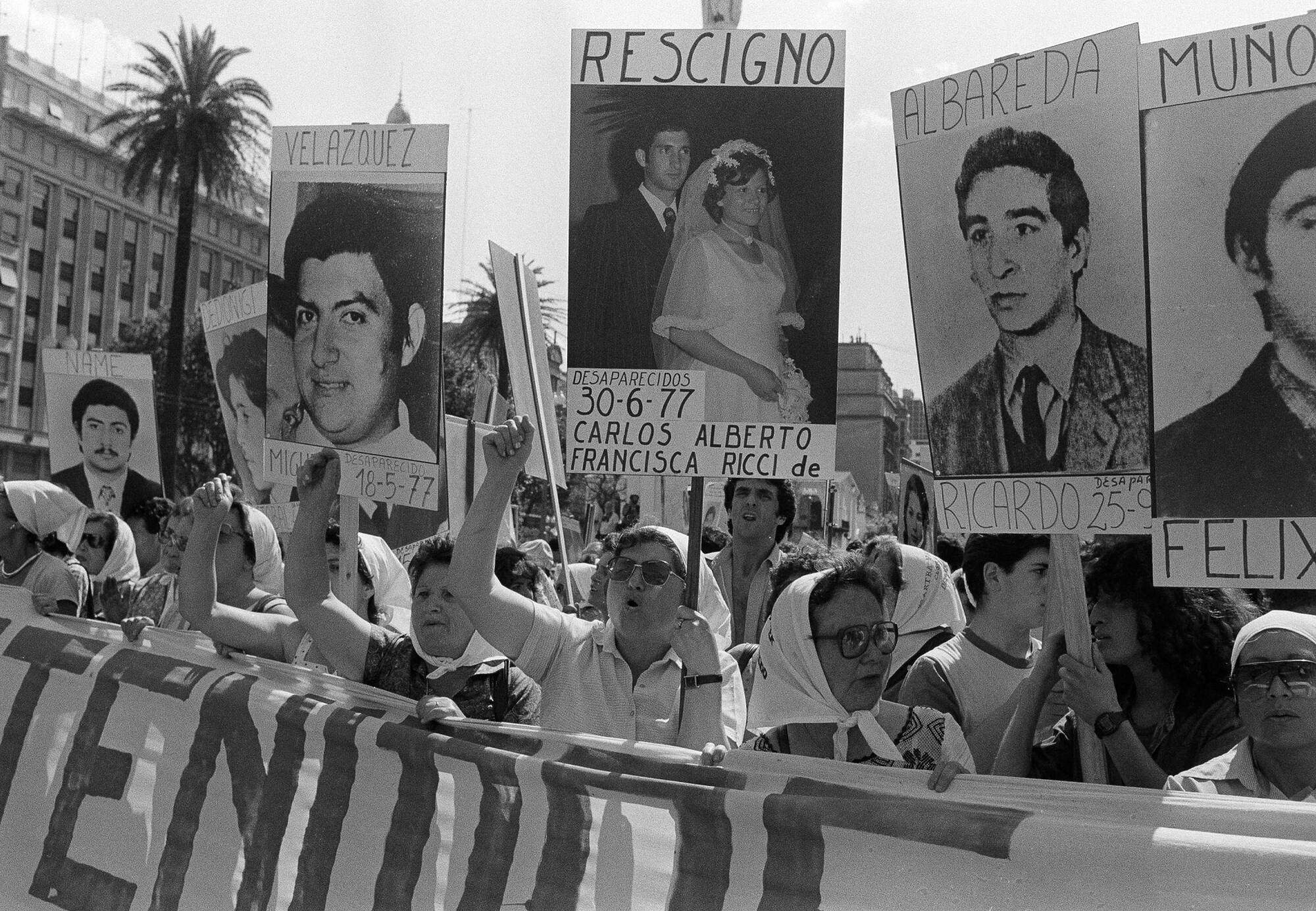
Las Madres de la Plaza de Mayo began demonstrating in pairs at a public square outside the government palace in Buenos Aires in 1977. Wearing white headscarves to symbolize the diapers once used by their missing children, these mothers (and grandmothers) demanded to know what happened to their loved ones during the 1976-1983 military dictatorship— a regime that killed an estimated 30,000 people and tortured thousands of others in clandestine detention camps.
The mothers and grandmothers, some of whom were Holocaust survivors, marched for four decades, putting their own lives at risk. In December 1977, three of the group’s members were abducted, drugged and loaded onto a plane, then thrown into the Atlantic ocean.
Because hundreds of babies were taken from the “disappeared” and raised by military families, Las Madres de La Plaza de Mayo also helped reunite the children of kidnapped people with their living relatives. Their advocacy also helped bring former military officials to trial for their role in the abductions. In 1986, the group split into two, each with its own objectives.
The symbolism of the Mothers of the Plaza de Mayo remains strong: In 2017, tens of thousands of demonstrators raised white headscarves in protest against the early release of those convicted of crimes against humanity.
Ukraine
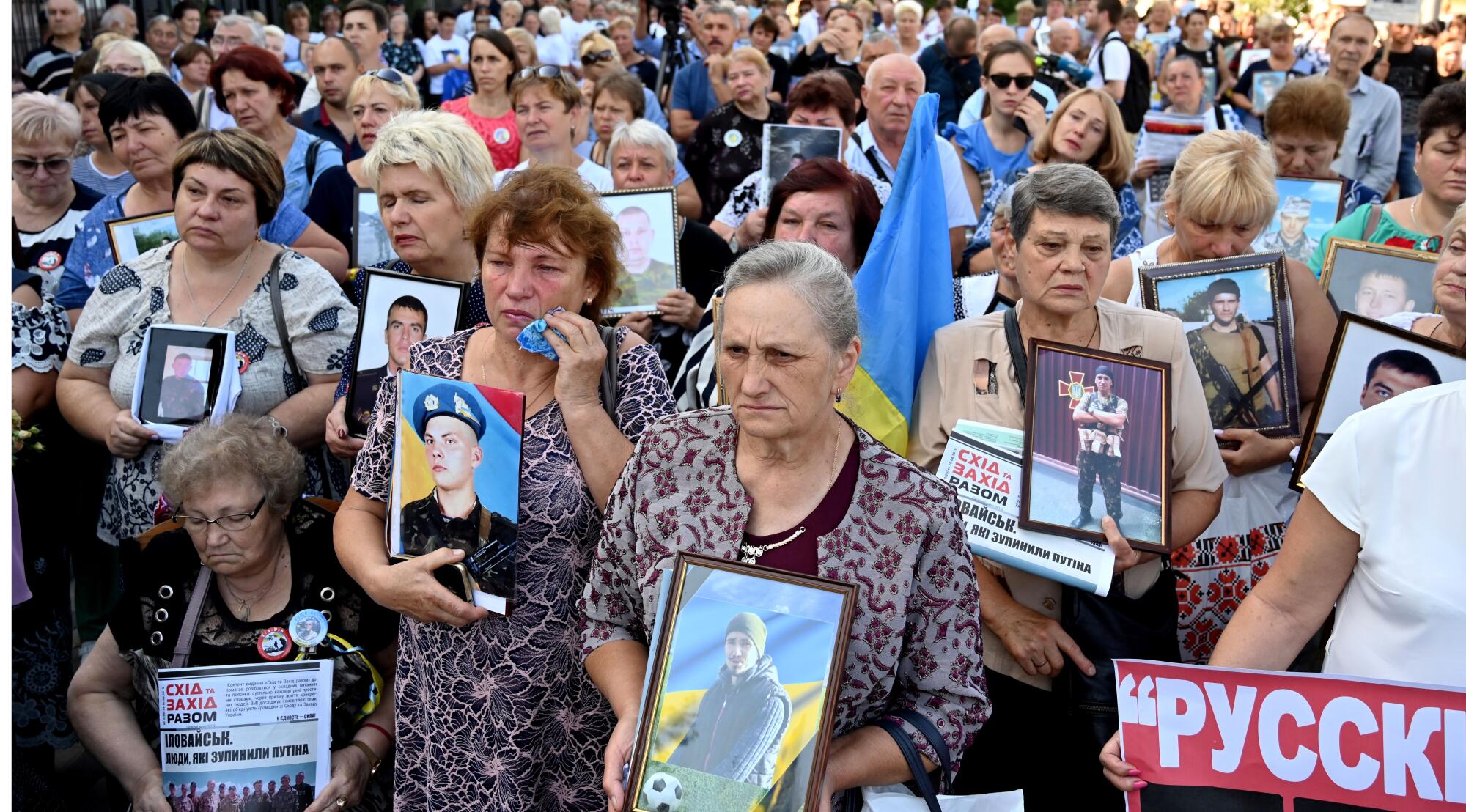
Shortly after Russia annexed Crimea from Ukraine in 2014, Russian-backed groups seized parts of the eastern Ukrainian regions of Donetsk and Luhansk, prompting a military operation to reclaim them. In August of that year, Ukrainian officials came to an agreement with the rebels, who pledged to provide a humanitarian corridor to allow Ukrainian troops to retreat. But the agreement was not fulfilled. Ukrainian troops were shot at while trying to exit, resulting in hundreds of deaths. Though Ukrainian veterans maintain the presence of the Russian military in the conflict, Moscow has denied that its forces took part in the battle.
Since then, the mothers and widows of Ukrainian servicemen killed at the Battle of Ilovaisk hold memorial rallies in front of the Russian Embassy in Kyiv. Every August, they carry their country’s yellow and blue flag, along with photos of their loved ones, and hold memorial rallies to mark the anniversary of the battle. At the demonstrations, the women tie red balloons representing the bloodshed to the gates of the Russian Embassy. They’ve also created mutual aid groups to support the families of military personnel.
Russia
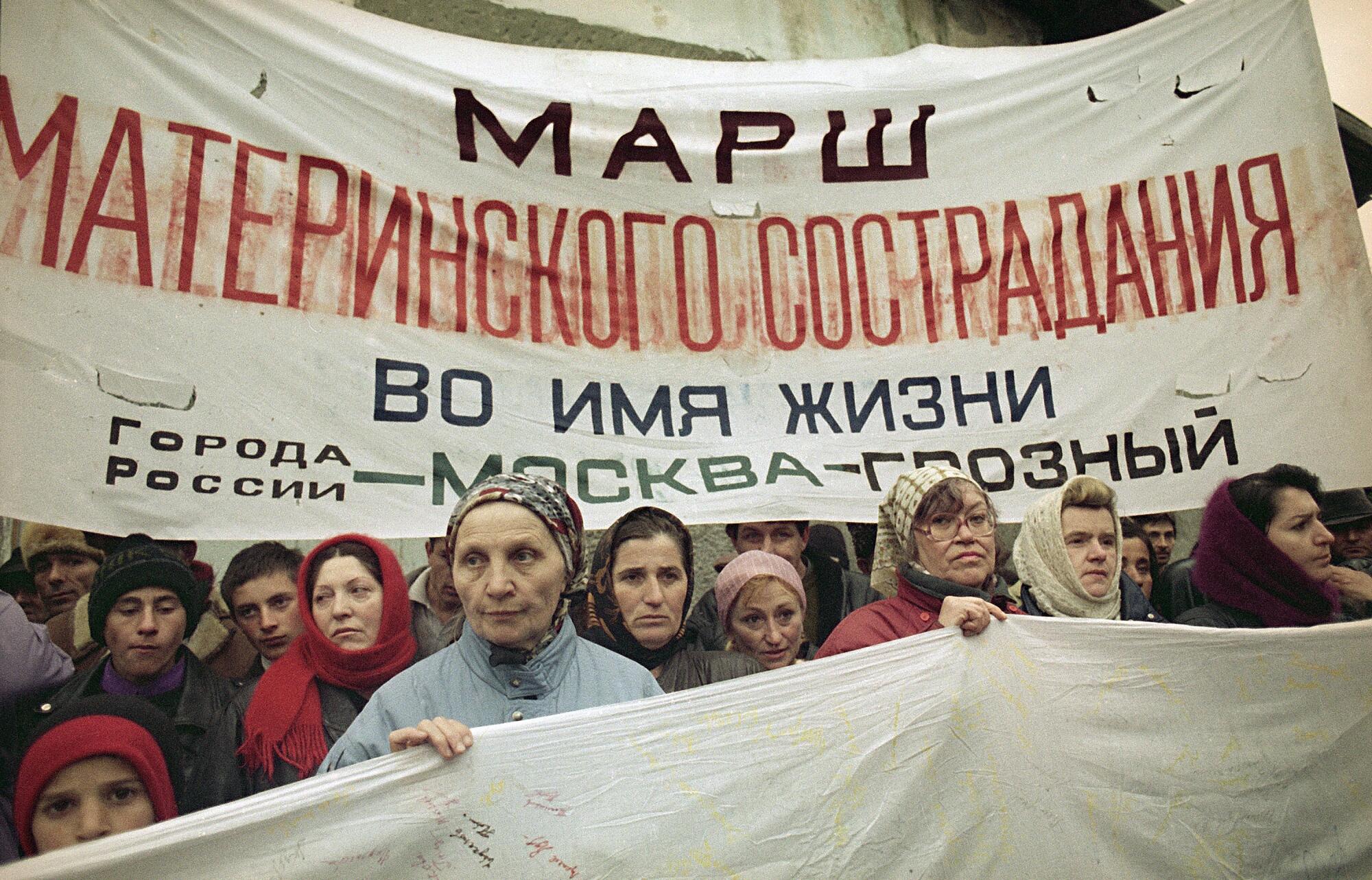
As the Soviet Union disintegrated, Chechen separatists declared independence from Russia in the early 1990s. The first Chechen war broke out in 1994, and after less than two years of fighting, Russian forces withdrew from the region. Russian troops were accused of torching and pillaging houses, as well as raping and executing civilians. Chechen forces held captured Russian soldiers, some of whom refused to fire on the civilians who surrounded their tanks. Tens of thousands of people were killed in the conflict.
A group that formed as the Soldiers’ Mothers Committee to protect young Russian conscripts from hazing and other forms of army brutality years before the war broke out decided to take additional action during the conflict. Some 100 members of the committee, undeterred by snow and strong winds, participated in a 56-mile antiwar march to Chechnya’s capital. They carried placards that read “War in Chechnya Is a Shame″ and “Bring Our Sons Home,” along with signatures collected throughout Russia in opposition to the campaign against Chechen separatists.
As the conflict dragged on, hundreds of women poured into the region to seek the release of their sons from Chechen prisons, or to find their bodies.
Mexico
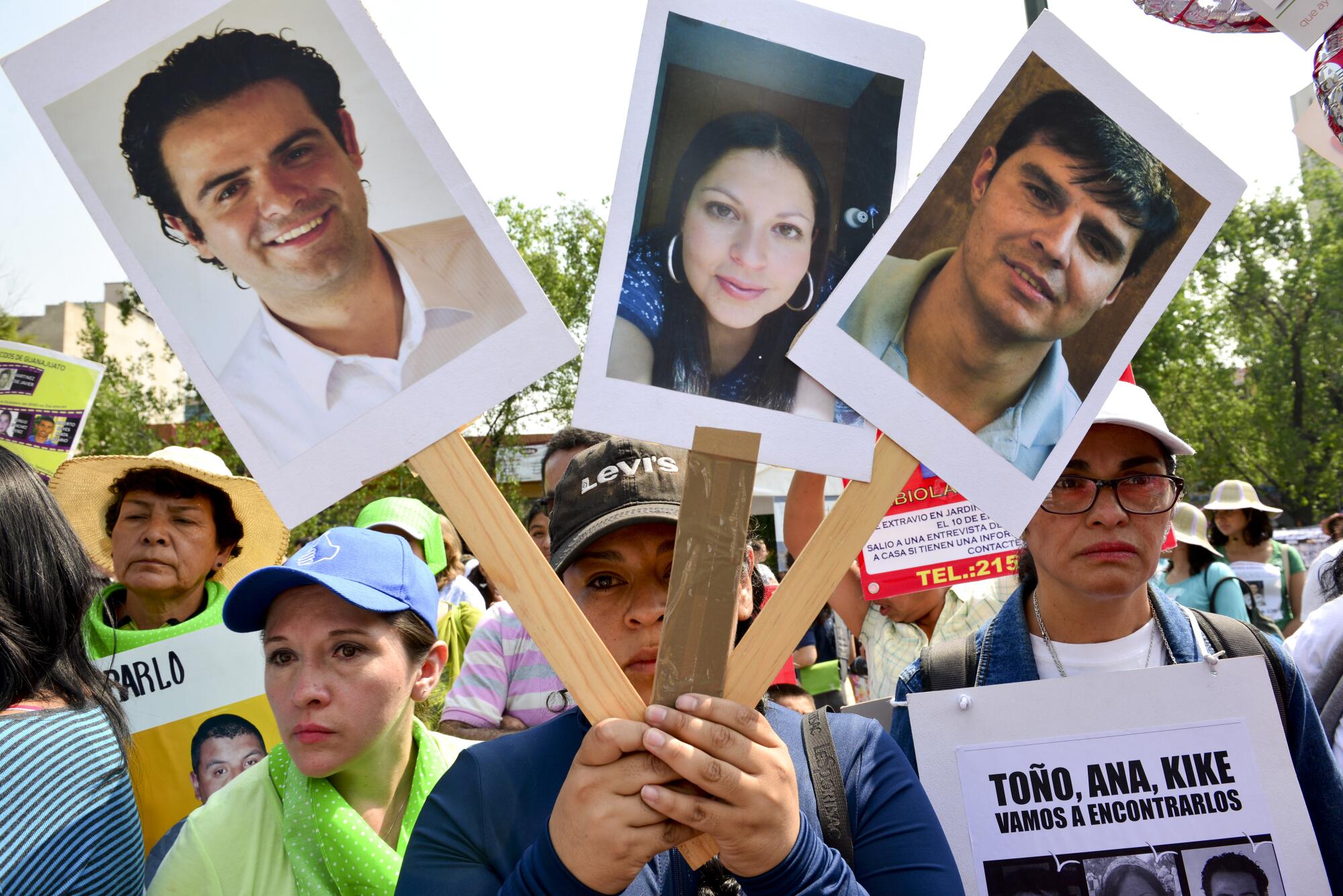
In Mexico, Mother’s Day events now typically involve marches led by the mothers and wives of tens of thousands of people who have gone missing since former President Felipe Calderón launched a “war on drugs” in 2006.
Wearing T-shirts emblazoned with enlarged photos of their missing children or other relatives, the mothers march through the capital and other parts of the country. Aside from the annual marches, many have banded together to form collectives, taking it on themselves to find their missing loved ones by combing through mass graves.
At a recent seminar on Mexico’s disappeared, social anthropologist and psychoanalyst Elena Azaola Garrido said that although fathers participate in the search collectives, the vast majority of these groups are led by and composed of women.
Azaola Garrido said the mothers who search for the missing suffer tremendously. Aside from threats from organized crime and corrupt government officials, “their own family members sometimes criticize them fiercely, telling them ‘let it go already’ and ‘Why are you so hung up on that?’ ”
More to Read
Sign up for Essential California
The most important California stories and recommendations in your inbox every morning.
You may occasionally receive promotional content from the Los Angeles Times.











